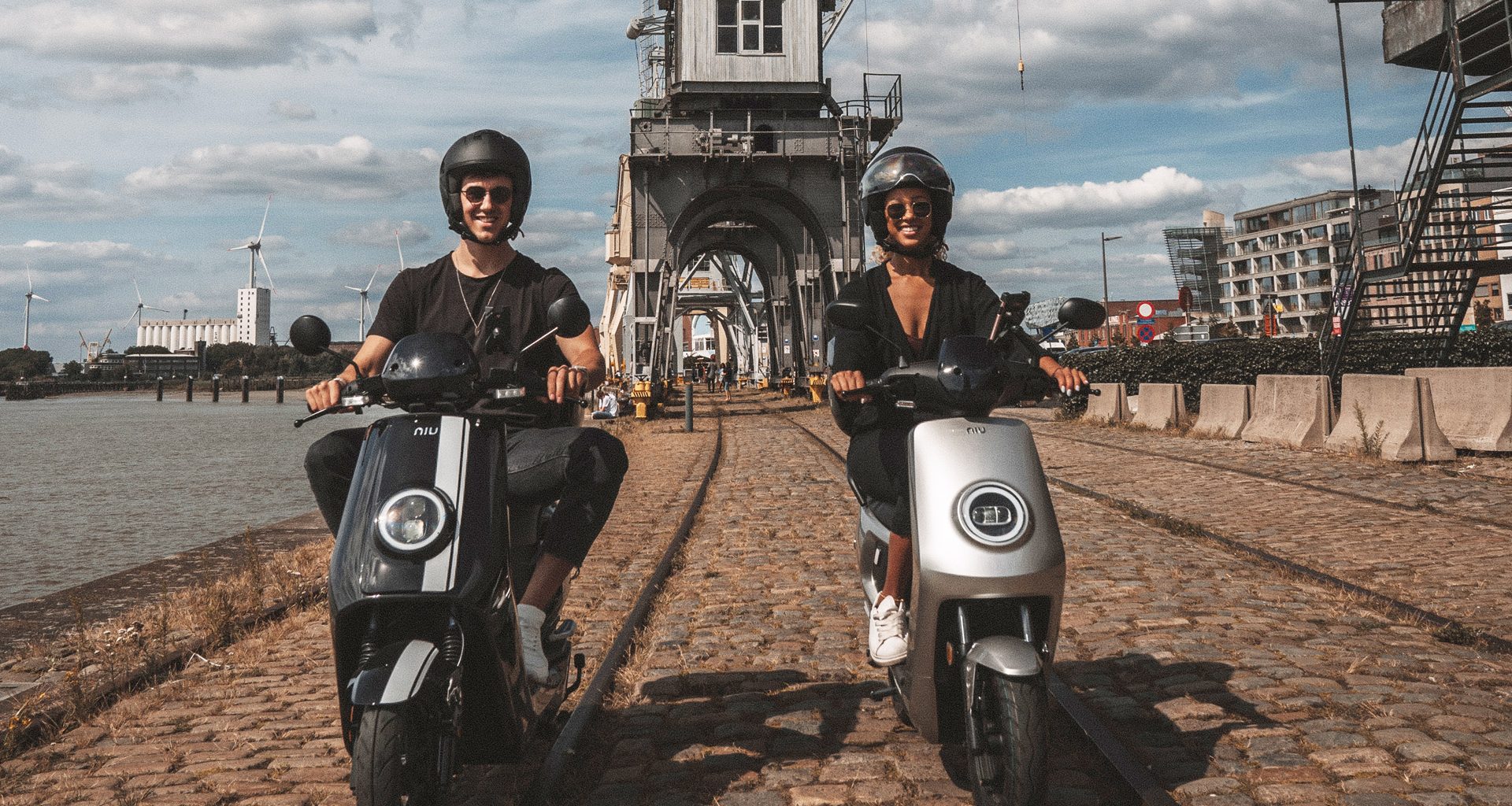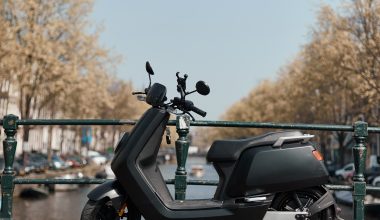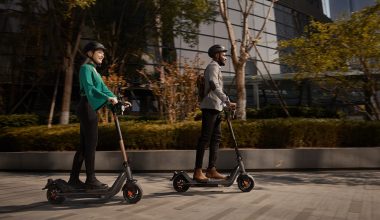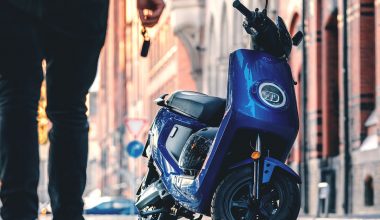50cc and 125cc: motor power
When you’re deciding to buy a scooter, one of the most important questions to ask yourself is, what type of motor do I want? That’s going to determine things like speed, legal requirements before you can get on the road, as well as personal preferences like size and style.
50cc vs. 125cc: what does the cc stand for?
The “cc” stands for cubic centimeters. It’s related to how much power a gas engine can produce. Electric scooters of course use electric power, so the measurement doesn’t officially apply to them. E-scooters’ power is measured in watts or kilowatts. But the ‘cc’ expression is well-known in the industry as a description for gas mopeds. These classifications (and their equivalents) are still helpful for understanding speed and the license requirements to drive these vehicles.
Fun fact: even though we tend to use the terms scooter and moped interchangeably, only 50cc engine scooters or less are actually considered mopeds – the term doesn’t apply to scooters with a larger engine size.
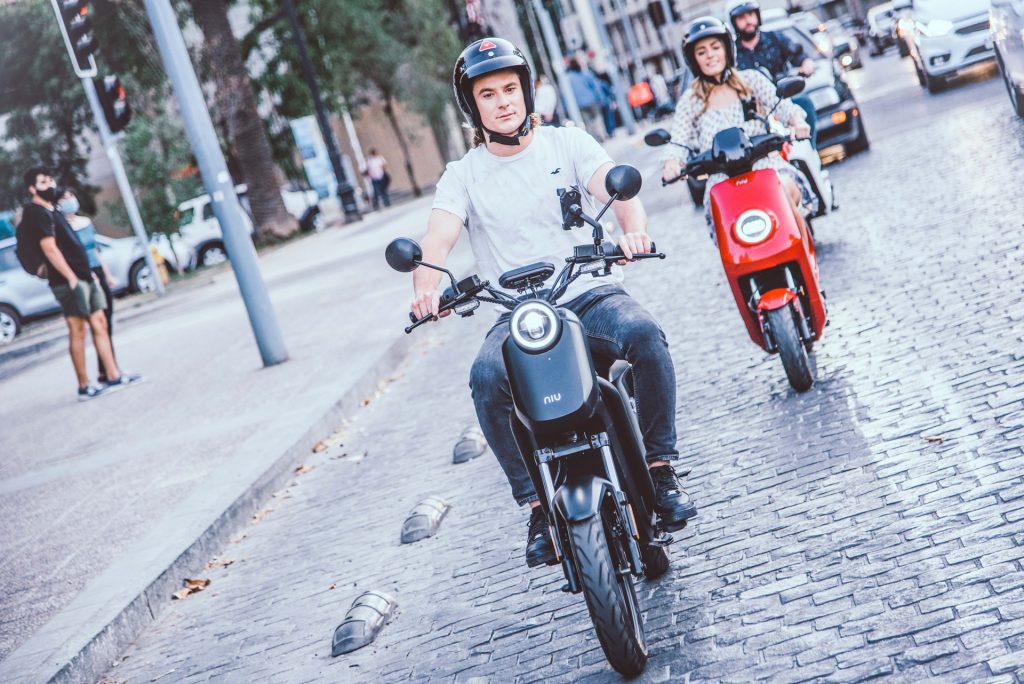
Specs and price
What’s the difference in speed?
50cc engines (and their electric motor equivalents) have a standard limit on their speed – the 50cc moped is essentially the slowest vehicle allowed on public roads. The restriction on their engines means they have a slower top speed than what they’re actually capable of, as per legal requirements. Their top speed is generally restricted to about 45 km/h (28 mph).
When the electric motor power exceeds 4000 watts, or it can reach a higher speed, it is therefore classified as 125cc equivalent. Their max speed is usually around 100 km/h (62 mph).
What’s the difference in price?
50cc mopeds are typically cheaper than 125cc scooters, though the difference isn’t always that significant. UQi GT, a 50cc-equivalent model, currently starts at €2399, while the top of the line MQi GT EVO (125cc) is about double that price. It may cost more, but considering all of the different potential upgrades available with a 125cc equivalent model, the extra money could be worth it for many riders.
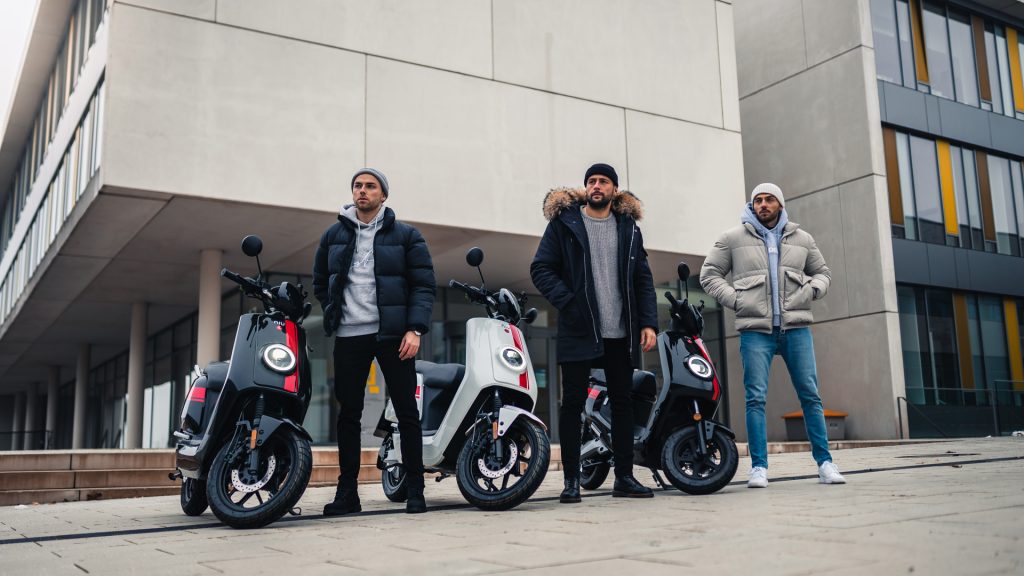
Personal habits
Size and convenience
It’s important to consider the size and hold capacity of these different vehicles. A 50cc moped will be great for storing the basics – usually there’s a small storage compartment for smaller items.
A 125cc scooter on the other hand, typically offers a bit more space in terms of storage, as well as extra space for riding with a guest. If you expect to ride with a partner frequently, it’s worth it to invest in a slightly larger scooter. Regardless of which scooter you choose, there is always the option to accessorize with extra perks like warm gloves, a windshield, or other weather-resistant add-ons.
What is my usual driving route?
A 50cc equivalent electric scooter may be best for city surface streets or beachside roads, whereas a 125cc equivalent scooter is a good bet for longer distance trips, suburban rides, or those who need to ride all day in a variety of urban environments. Remember that there are riding restrictions on scooters, depending on where you live.
Legality and security
What are the legal requirements?
Think about who might be riding the scooter you buy. Is it for you, or perhaps for an adolescent or loved one? Depending on the age of the rider and their location, there are some limitations to the type of vehicle they’re legally allowed to ride. Most cities in the US and in Europe limit those under age 17, for instance, to mopeds, e-bikes and kick scooters 50cc and under. For riders who don’t have their driving license yet, consider a kick scooter.
In many regions around the world, there is also a motorcycle license requirement if you’re planning on riding a 125cc scooter.
Security and rider learning curve
A 125cc scooter will take up more space on the road, and thus will be easier for cars to see you, which could potentially feel more secure. Yet the increased speed of a 125cc scooter can also increase the learning curve, especially for inexperienced drivers.
Think of a 125cc scooter like a warm up to a motorcycle – it’s not as hefty nor as pricey, but will give you a similar feeling as a motorcycle. If you’ve never ridden a two-wheeler, it might be helpful to start off slow and build your way up. Compare the benefits of motorcycles vs scooters to see what is a better fit for you.

All in all, whether you choose a 50cc or 125cc scooter is a personal decision, based on your habits, preferences, and needs. It’s a great idea to do some research before buying: talk to scooter owners you know, read up on the different options, and take your time before you buy.
Trust us: regardless of what electric scooter you buy, these are efficient, cost-effective, fun-to-ride vehicles that you’ll treasure for a lifetime. Take a test drive at a NIU dealer near you to experience it for yourself.
